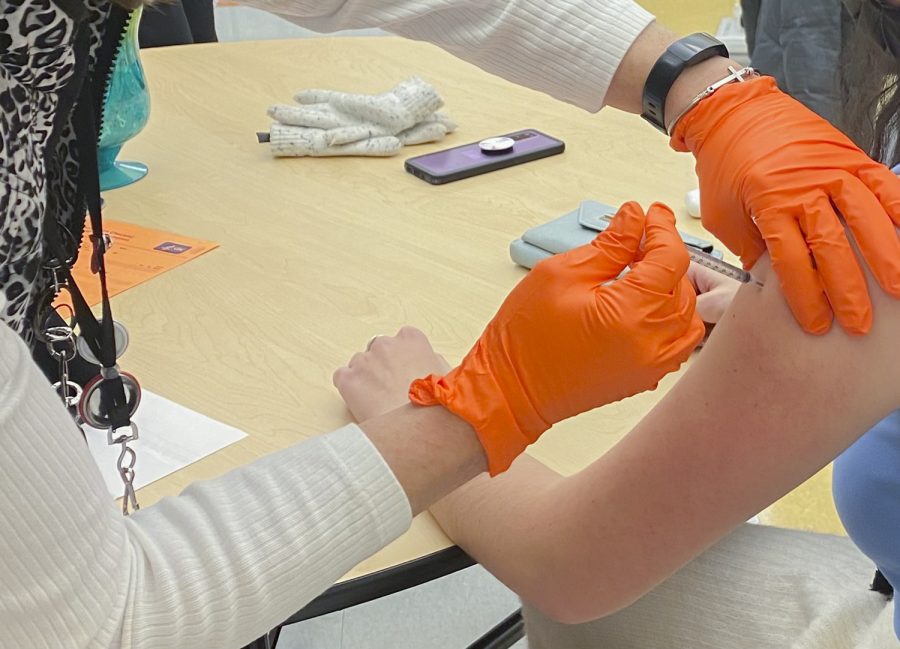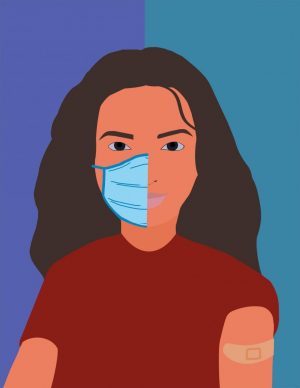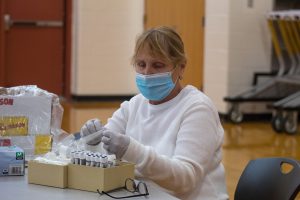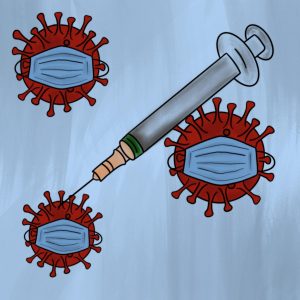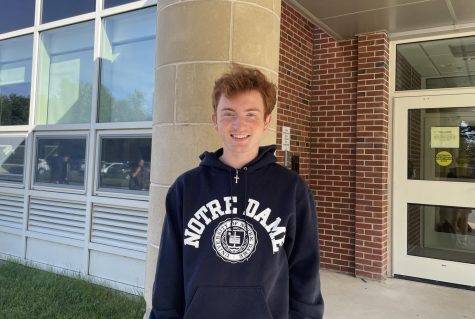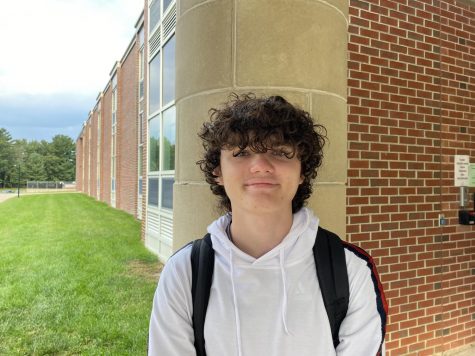What those most affected think of the booster vaccine, Omicron variant
Senior Matea Rowe-Bond receives a covid vaccine booster on Tuesday Jan. 12. (photo by Judy Bond)
February 2, 2022
In response to recent spikes in COVID-19 cases, several local health professionals have encouraged community members to receive the booster vaccine.
From Dec. 23, 2021 to Jan. 12, 2022, there were 202 positive COVID-19 cases recorded at Algonquin and 633 across all public schools in the district. The Northborough and Southborough Health Departments support clinics that offer the booster, which the CDC recommends everyone 12 years and older to take five months after their original COVID vaccination shots.
“The booster shot is the third dose of the COVID-19 vaccine, and it’s given to those who have already received two doses of a prior mRNA vaccine such as Pfizer or Moderna or a second dose for those who received the [Johnson & Johnson] vaccine,” district physician Safdar Medina said.
As a general pediatrician, Dr. Medina is extremely familiar with the effects of the booster vaccine.
“[The booster vaccine] provides continued protection against risk of getting seriously ill or landing in the hospital against COVID-19,” Medina said.
Many students including junior Charlie Aymie have taken it upon themselves to stay informed on what the booster is.
“I know it’s just the normal vaccine, at least for Pfizer,” Aymie said. “I know the booster and the normal vaccine are basically the same and will help boost your immunity for months after the other vaccine’s antibodies wear off.”
An important aspect of the booster vaccine is its possible side effects.
“People can experience a very short-lived duration—a few days or one day even—of fatigue, nausea, body aches, fever and chills,” Medina said. “This can happen after the first [dose], second [dose] or the booster shot.”
Senior Delaney Cosentino believes that people receiving the booster can help the community as a whole.
“I plan on getting the booster shot because I’ll do whatever I can at this point if it is going to somehow help the situation and cause less sickness for myself and others,” Cosentino said. “I would do what it takes to help make this world go back to a little bit of normalcy.”
The rapid increase of COVID-19 cases due to the Omicron variant has further changed Cosentino’s outlook on the virus.
“[The Omicron variant] has shown me that this virus is still happening and can be spread super easily, so it’s brought my awareness back up,” Cosentino said.
However, freshman Garrett Willwerth is less afraid of the new variant in comparison to past variants.
“[The Omicron variant] made it less scary for me because it has gotten weaker,” Willwerth said. “Obviously it spreads faster, so we’re going to have a good two, three weeks or even a month getting through it.”
Others, such as physics teacher Nathan Largesse, who has a one-year-old daughter, have responded to the Omicron variant cautiously to protect those at home who are at high risk or can’t get vaccinated.
“[Having a young child] affected [my response to the virus] because it has made me be a lot more cautious to the point where I’ve even caught myself daydreaming about how much easier the pandemic would’ve been if I didn’t have anyone that I was in close contact with that I was concerned about,” Largesse said.
Those ages 18 and above who have received two Pfizer vaccines can get a Moderna vaccine, and those who have received two Moderna vaccines are eligible for the Pfizer vaccine as their booster, which is available at local clinics.
“Students can have their parents call their primary care provider or schedule an appointment at a pharmacy [to receive the booster],” Medina said.



